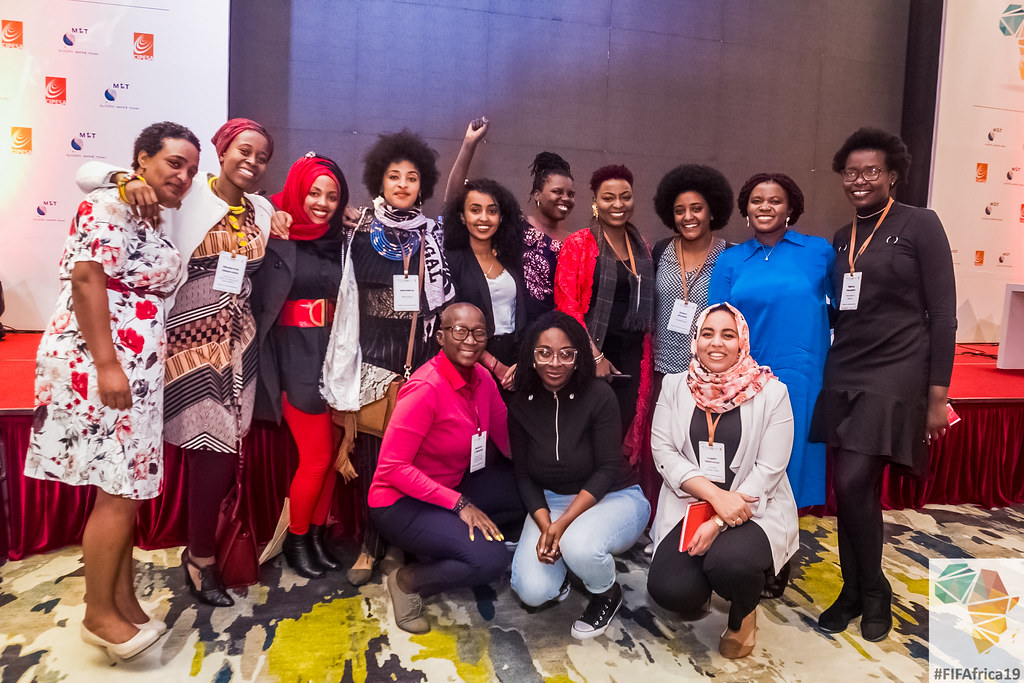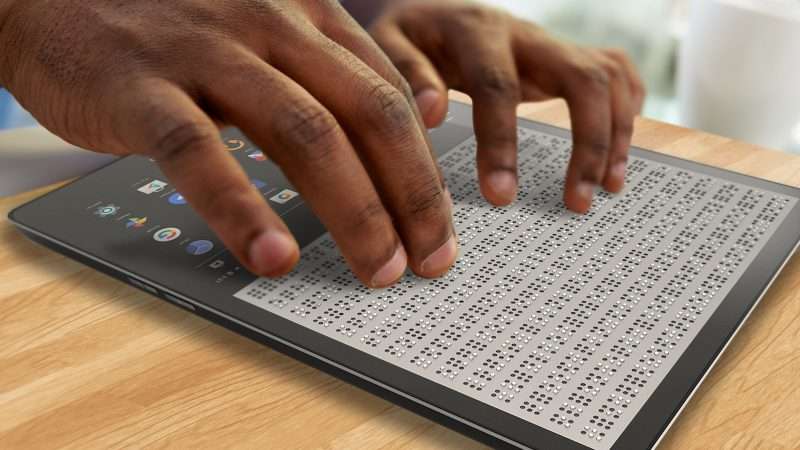Technology and cyberspace are key enablers of Africa’s agenda 2063, Kenya’s Vision 2030 coupled with the current big 4 agenda on Manufacturing, Food security and Health which aims at using technology and innovation to transform Kenya into an industrialized and secure middle-income country.
Click here for more details on the event.
Women in Tech Africa 2020
With tech leaders and professionals from across Africa, Women in Tech Africa 2020 is set to become the most progressive conference for women in technology on the continent, with game-changing sessions, inspiring speakers and cutting-edge technology all under one roof.
Click here for more information on the event.
Silent No More! Africa’s Feminist Voices Are Growing Louder
By Juliet Nanfuka |
In much of Africa, feminism is often incorrectly considered a new movement. However, the reality is that feminism in the continent has played a role in shaping social and cultural relations, as well as policy and business development around the continent for decades. It is perhaps the increased vibrancy of feminist narratives in the African digital sphere that has led many to assume its novelty. The difference, however, is that the use of digital technologies has enabled the feminist voice to become more visible, even blatant, unapologetic in the push back against deep-seated patriarchal social mores.
Socialisation practices have seen girls and women expected to be “obedient”, with this often expected to be the order in the home, school, public spaces, workplace as well as online. Women who challenge this narrative have often been and continue to be branded negatively due to their rejection of this patriarchal order.
Watch FIFAfrica19 session: End of Politeness: African Feminist Movements and Digital Voice
According to the International Telecommunications Union (ITU), in all regions of the world, more men than women use the internet with the largest gender digital divide found in developing countries. This supports a 2015 research by the World Web Foundation which found that women in urban poor communities in countries such as Cameroon, Egypt, Kenya, Mozambique, Nigeria, and Uganda were 50% less likely to use the internet than men.
Sub-Saharan Africa continues to face inequalities which reflect the disparities present in basic access to education and finance, among other rights. These are compounded by the overt sexualisation of girls and women in media and popular culture, the exclusion of women from positions of power in numerous fields including in politics and business through to policy making and technology development.
While existing inequalities are rooted in tradition and social mores, many more are maintained by religious and educational institutions and in some instances reinforced by outdated national laws. These structures of inequality were among the issues discussed at the Forum on Internet Freedom in Africa (FIFAfrica) 2019 during sessions on feminism in Africa and women’s digital leadership. In one of the sessions, it was it was reported that in Malawi, women’s participation in protest can lead to persecution as was the case for Beatrice Mateyo, Executive Director of the Coalition for the Empowerment of Women and Girls (CEWAG) who was arrested and charged with “offensive behaviour to the modesty of a woman or intent to insult the modesty of a woman” in September 2017 for carrying placards during an anti-violence protest with the handwritten Chichewa words “kubadwa ndi nyini si tchimo” (to be born with a vagina is not a crime/sin) and “my pussy my pride”.
Panelists also noted the experiences of women in Sudan, who remain policed through Section 234 of the Penal Code and have been publicly flogged for “indecent dressing” and for “being vocal in public.” The section states, “Whoever to the annoyance of others does any obscene or indecent act in a public place, commits an offence and shall on conviction, be punished with imprisonment for a term not exceeding two years or with fine or with both.”
These various forms of repression against women have been transferred online, but it is also online that the pushback against them has gained momentum and increased amplification. There is increased local content generation on the systems that have fueled and shaped gender and sexual identity based inequalities. Further, online campaigns and movements such as the #TakeBackTheTech, #FeministInternet, #BringBackOurGirls and #MeToo have contributed to a shift in how feminism, gender roles and perceptions are understood and interpreted.
However, many feminist commentators and content creators online, particularly on social media, have been met with hostility in the form of trolling, personal attacks, threats of violence and more, often disproportionately to other users, as a consequence of expressing feminist views. Frequently attacked are women in politics, journalism, business, sexual minorities, as well as those making commentary on sexual minorities, and In some cases, unsuspecting girls and women whose images are shared online for ridicule and shaming.
While some have been forced offline as a result of the backlash, others have opted to face critics through practicing “radical rudeness” which challenges the established social expectations of women online and offline. The most recent notable case of radical rudeness is that of Ugandan academic Dr. Stella Nyanzi, whose campaign for improved service delivery resulted in her incarceration for insulting the president under the Computer Misuse Act, 2011.
At FIFAfrica, panelists called for increased solidarity in movements which support feminism and equality. Among the recommendations that emerged from the discussions is the need for increased advocacy on feminism and women’s rights online alongside more public initiated campaigns online and offline which amplify where policy and public positions should be with regards to the promotion of women’s rights. The widespread online amplification of issues is increasingly being used as a tool in advancing awareness on the need to maintain a feminist voice online. Panelists also noted the need for more use of popular culture including various mediums in art and design, literature, social media as well as poetry and theatre to highlight the shifting voice of African feminism. However, they noted the need to remain steadfast amidst the continued pushback against women’s rights and equality in society both online and offline.
‘People With Disabilities Left Out in ICT Jamboree’
By Marc Nkwame |
As more Tanzanians join the digital world of Information Communication Technology (ICT), the majority of people living with disabilities have been left out, according to stakeholders.
It has been observed that in their quest to optimize profits, equipment suppliers, content producers and mobile communication service providers skip the needs and rights of persons with disabilities wishing to access such services.
Speaking during a special awareness workshop for Information Communication and Technology accessibility among persons with disabilities, the coordinator, Paul Kimumwe from the Collaboration on International ICT Policy for Eastern and Southern Africa (CIPESA) pointed out that it is high time countries formulated special laws to ensure that marginalized groups are also catered for when it comes to such services.
“And if countries have such policies in place, there is the need for legislators to push for their execution, as it seems mobile service providers cater only for a physically able clientele,” he specified.
His observation was also reflected in an assessment tool for measuring mobile communication accessibility for persons with physical disabilities deployed among participants during the just ended workshop on how ICT development side-lined people with special needs.
Dr Eliamani Laltaika, a lecturer from the School of Business Studies and Humanities at the Nelson Mandela African Institute of Science and Technology (NM-AIST), said the society’s mentality and personal stigma contribute in how ICT establishments view the needs of disabled persons.
“Unlike in the past, people should now realize that in the modern era, all is needed for a person to be useful is a healthy brain not peculiar appeal,” he cautioned.
According to the Don, it is usually the persons with physical disabilities that can prove to be extremely good intellectually and especially in Information Communication Technology (ICT), which means once empowered they can perform better than their physically fit counterparts.
Participants realized that mobile handsets are designed for people with hands and those with strong eye sights, while traders and phone service providers are yet to import gadgets that can cater for people without sight or hands.
Ndekirwa Pallangyo, representing the regional chapter for the Federation of Disabled Persons’ Associations in Tanzania (SHIVYAWATA), admitted that people with disabilities have been left out in ICT development.
“And the worst part of it is that even persons with disabilities themselves are unaware that they have been side-lined,” he said, underlining that when it comes to attending to the needs of the physically handicapped, it is important to consider individual requirements.
“There are those who are physically fit except for their sight. Others have impaired hearing, some can’t walk while there are those with no hands, etc. therefore each group need to be handled according to needs,” the activist added.
Originally published on IPP Media
Human rights challenges in the digital age: Judicial Perspectives
The digital space is a powerful enabler for more inclusive democratic discourse, participation and policy-making. A free and open internet means simplified access to information, knowledge, culture and education, among other things, and it can also facilitate the exercise of fundamental rights. At the same time, digitisation comes with new challenges.
You can click here for more information on the event.


